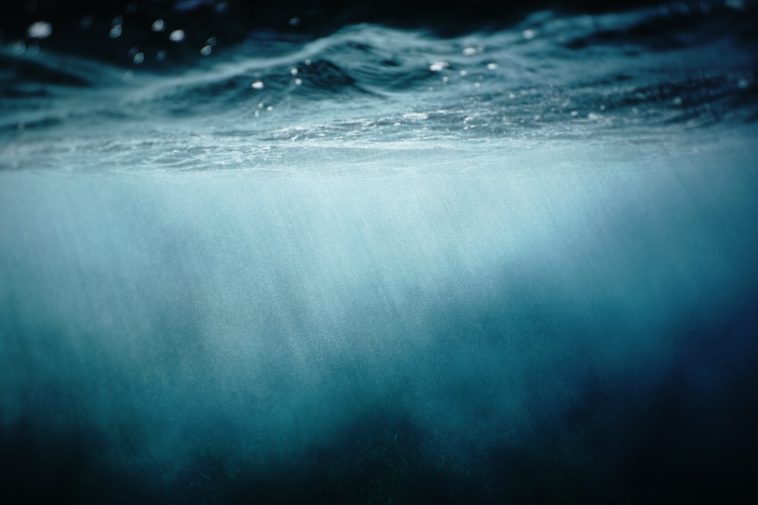Do you dream of a career that combines the thrills and challenges of deep sea exploration with an exciting and unique job? If so, underwater welding could be for you. Underwater welders work in some of the most extreme environments on Earth, earning competitive salaries as they build and repair structures below the surface. So what is the average salary for this daring profession? Let’s dive into it headfirst!
Page Contents
What is Underwater Welding
Underwater welding is a specialised form of welding that takes place underwater. It requires the use of specialized equipment and techniques in order to ensure the welds are properly executed and the welders remain safe from potential hazards. Underwater welders use a variety of methods, including arc welding, tungsten inert gas (TIG) welding, plasma cutting and exothermic burning. The main goal of this type of welding is to create secure joints between two metal surfaces that will be able to withstand pressure created by water or other external elements.
The process involves submerging both pieces into a body of water – usually either salt or fresh – before beginning any work on them. This allows for an easier application of heat as well as greater accuracy when making cuts and completing joints since there’s no air gap between the two pieces being worked on. Most jobs also require divers who can help with positioning materials correctly and managing any necessary machinery used during the process like oxygen tanks or hoses for arc torches. Specialized tools such as long reach electrodes may also be employed depending on the nature of each job site, allowing for better access in hard-to-reach places beneath the surface.
In addition to normal safety precautions taken in all forms of welding, underwater welders must take extra steps to protect themselves against potential dangers such as electric shock from faulty wiring or breathing problems due to low visibility conditions under water. Professionals working with these methods often wear heavy duty wet suits along with protective masks while they perform their duties so they can stay below safely without danger posed by extreme temperatures or dangerous gases released during combustion processes like those involved with oxyacetylene torches used in some cases underwater too!
Job Description and Qualifications
A job description is a document that outlines the essential responsibilities, activities, qualifications and skills required to perform a specific role. It can be used in many different contexts from recruiting new staff members to training existing employees.
When writing a job description it’s important to consider both the employer’s needs and the candidate’s interests. The language should be clear and concise while still conveying all of the necessary information. Here are some key points to remember when crafting your own job descriptions:
• Clearly define what duties will be expected of new hires
• Define any educational or experience requirements for applicants
• Describe what kind of person would thrive in this role
• Outline any special skills or knowledge required for success
• Explain why this position exists within your organization
Qualifications provide employers with an indication as to whether potential candidates possess the necessary prerequisites for success in a particular role. They not only help narrow down which prospective candidates have the right background but also serve as an indicator about how much time may need to be invested into onboarding new hires. When specifying qualifications, some things you might want include:
• Degree(s) obtained (if applicable)
• Years of relevant work experience
• Technical proficiencies (e.g., coding languages, software programs etc.)
• Any licenses or certifications they must hold
• Specialized knowledge needed
Factors Influencing Salary in Underwater Welders
Underwater welding is a specialized skill set that comes with its own unique set of challenges and rewards. As such, it’s important to understand the various factors that can influence the salary of an underwater welder.
The first factor influencing pay for underwater welders is experience level. Generally speaking, those who have more years in the industry will make more than their less experienced counterparts. This stands to reason as they are able to offer higher quality work due to their greater knowledge and expertise in this field. Additionally, many companies prefer hiring those with a proven track record rather than inexperienced newbies so having a few years under your belt can be beneficial when negotiating salaries or bidding on projects.
Another key element impacting wages for underwater welders is certification level achieved by each individual candidate. Those holding certifications from respected organizations such as American Welding Society (AWS) tend to command higher salaries compared to non-certified personnel due to the fact that these professionals possess specific qualifications required for certain types of jobs or tasks within this profession. Additionally, employers usually view certified welders as being safer and more reliable workers since they have gone through rigorous testing which ensures they meet all safety standards in place regarding dangerous deep sea construction operations like welding repairs and maintenance activities conducted at depths below 300 feet or 91 meters below sea level . Furthermore, some employers may even provide additional bonuses or incentives if an employee has earned multiple certifications over time which allows them access into different areas of work where higher remuneration awaits them depending on actual job requirements fulfilled during any particular project assignment undertaken by said personnel member .
Average Salaries of an Underwater Welder
Underwater welding is a highly specialized and lucrative profession, requiring rigorous training and certification. Those who choose to pursue it are rewarded with competitive salaries that can reach into the six figures. With advancement, experience and additional certifications, an underwater welder’s salary can increase substantially.
For those just entering the field of underwater welding, most positions start in the $50-60K range per year. This figure often includes overtime or bonus pay opportunities associated with particularly challenging jobs or difficult conditions (such as working in extremely cold water). As an underwater welder gains more experience and becomes certified for different tasks or types of welds (such as orbital TIG), they may be eligible for higher paying positions – sometimes earning wages well over $100K annually.
At the highest end of potential earning power are those who have reached expert level – able to work independently on complex projects without direct supervision from a dive supervisor or engineer; these experts typically earn yearly salaries near $150K+. Many experienced divers supplement their income by taking on freelance gigs between larger contracted jobs – providing both increased earnings and valuable flexibility in scheduling their dives around family commitments or other activities.
Pros and Cons of Being an Underwater Welder
Underwater welding is an intriguing and exciting career. It has its advantages and disadvantages.
The pros of being an underwater welder are plentiful. The money can be very good, depending on the job you do- it’s not uncommon for some welders to make six figures annually or more with experience and skill. You’ll get a unique view of the world beneath the waves, seeing things you could never observe from land – fish, coral reefs, shipwrecks that were lost centuries ago – all in their natural habitat. On top of this fascinating look at another world, there’s also a certain degree of adventure involved in this line of work; no two days will ever be exactly alike when you’re working underwater!
But like any other job out there, there are cons too – namely safety concerns due to extreme conditions that come with welding while submerged in water as well as potential health risks such as decompression sickness (“the bends”) which can occur if divers don’t ascend slowly enough after working deep below sea level for extended periods of time without proper breaks or rest stops along the way up. Additionally, because so much relies on specialized equipment to keep welders safe while they’re doing their jobs – from wetsuits to air tanks etc.- it can be quite expensive upfront for new applicants who want to join this field but may not have access to these resources yet (though many companies will provide them). Lastly, long hours away from home combined with unpredictable weather patterns can sometimes put a strain on family life if one isn’t careful about balancing both worlds together properly.
Pros:
•Good salary potential
•Unique views/adventures
•Interesting work environment
Cons: •Safety concerns •Health risks •Expensive equipment needed •Long hours away
Training and Certification Requirements
Gaining the necessary training and certifications to pursue a career in any field is an essential step for success. Whether you want to be a doctor, engineer, or lawyer – it’s important to learn the skills required for the job and obtain official recognition that these skills have been mastered.
Achieving certification can involve various activities such as attending classes, online programs, seminars or workshops; completing exams or assessments; taking part in internships or apprenticeships; obtaining letters of recommendation from professors; shadowing professionals already working in the field; conducting relevant research projects and more. The specific requirements depend on which profession you are interested in pursuing – but all of them require hard work and dedication!
For example, if someone wanted to become a registered nurse they would need to complete an accredited nursing program as well as pass both the NCLEX-RN (National Council Licensure Examination) exam and their state’s board of nursing licensing examination. Furthermore they may need to retake any courses which haven’t been passed with at least 80%. Additional certifications may also be needed depending on where they plan on practicing. It’s also important for nurses to stay up-to-date with new evidence-based practices by taking continuing education courses throughout their careers in order maintain current licensure status.
In conclusion, becoming certified requires extensive study plus various forms of practice related experience before one can receive formal recognition for their acquired knowledge and know-how within a particular industry. Aspiring professionals must invest considerable effort into acquiring the necessary qualifications so that they can move forward with confidence when it comes time for them enter into their chosen profession.
Career Opportunities for Underwater Welders
Underwater welding is one of the most unique and rewarding careers available to skilled professionals. It requires a special kind of person who has the capability to work in extreme conditions and can handle the pressure that comes with such an important job. Those who pursue this profession typically have a great sense of adventure, as well as physical strength, stamina and endurance.
This type of welding is not for everyone; however, those who excel at it can enjoy some amazing benefits from pursuing such an exciting career path. For starters, this type of welding offers excellent financial rewards – underwater welders are often highly paid due to the specialized nature of their job and the skill required to do it successfully. Additionally, they get the chance to travel all over world while doing something that they love – exploring new places while helping make them safer through their expertise in welding technology.
The experience gained by working as an underwater welder can also be invaluable for furthering your career opportunities down the road. Many employers value these types of skills when considering potential candidates for positions within their organizations because underwater welders possess a unique set of abilities that can’t easily be replicated or learned elsewhere. They are able to solve problems quickly and accurately under immense amounts pressure which can prove invaluable in many industries outside just engineering/welding related ones too!
Wrapping it Up!
In conclusion, underwater welding is a highly specialized field that requires technical knowledge and certification, as well as the physical capacity to work in harsh conditions. The salary of an underwater welder can vary depending on several factors, including location and experience level. Although this type of career offers exciting opportunities for working in unique environments, it also has its drawbacks such as long hours and potential risks. Training and certification requirements are necessary before starting a career in this field but with the right qualifications anyone could become an expert underwater welder.
what is the average salary of a underwater welder
Frequently Asked Questions!
The average salary of an underwater welder can vary depending on experience and location, but generally ranges from $50,000 to over $100,000.
What Is The Job Description Of An Underwater Welder?
Underwater welders are responsible for welding metals together in a variety of environments including deep-sea vessels and oil rigs. They need to be able to safely complete projects under extreme pressure with limited visibility and challenging conditions. This job requires detailed knowledge of the welding process as well as excellent physical endurance and strength.
What Are The Qualifications For Becoming An Underwater Welder?
In order to become an underwater welder you must have completed formal education in welding technology or possess relevant work experience. You should also hold a valid dive certification that is approved by the American Bureau of Shipping (ABS) or other certifying body such as DCBC Welding certification program. Additionally, all underwater welders need basic safety training as well as additional certifications specific to their field such as AWS Diving Certification Program or Commercial Diver Training Program (CDTP).
Are There Any Health Risks Associated With Underwater Welding?
Yes, there are certain health risks associated with this profession due to the hazardous nature of the environment which includes extreme temperatures, high pressures and limited visibility while working in deep waters. Potential hazards include decompression sickness, nitrogen narcosis and oxygen toxicity so it is important for workers take necessary precautions when operating at depths beyond 33 feet below sea level.
What Gear Do I Need To Start Working As An Underwater Welder?
In order to begin working safely as an underwater welder you will need specialized gear including: full face masks with communication systems; waterproof hoods; wet suits; air tanks; fins; cutting torches & electrodes; regulators & hoses for breathing apparatus; certified helmets/shields for eye protection.; gloves & boots specially designed for welding operations beneath water’s surface .





